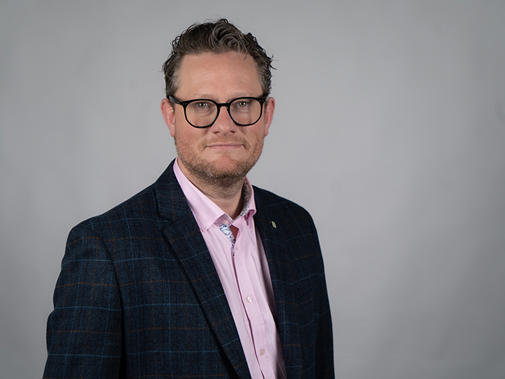Whenever a patient or a friend asks me why I became a GP, I always have the same answer: ‘I like talking to people.’
I started my medical career training in surgery but realised soon I preferred talking to patients, explaining their conditions, and working with them to understand what was happening to them, rather than operating. I found the opportunity to move into GP training, and still love the interaction with patients to this day.
I’ve been fortunate enough to get to know families over several generations, and have seen tiny babies grow into teenagers, and their parents become middle aged as I have. Birth and death, joy and heartbreak, and everything in between – I’ve been allowed to share and witness, counsel and guide. Many of my patients I now also call friends over the years I’ve treated them.
But over my time in general practice, I’ve been forced to spend more time looking at my computer screen and hurrying through a consultation to tick off the huge number of unnecessary targets that need to be completed.
The time to listen and work with a patient has been consumed by the need to measure and document irrespective of why they’ve come to see me. As I try to concentrate on the impact of bereavement, a newly diagnosed illness, test results that could mean joy or disaster, there is a computer screen telling me to check if the person in front of me has stopped smoking, had their weight checked, or had their completely stable asthma checked.
Those boxes can’t be ignored forever, otherwise the practice won’t get paid to look after my patient, and we creep slightly nearer to no longer being a financially viable practice. So, my patient and I compete for time in their appointment.
It doesn’t have to be like this. GPs must be trusted by government to care for their patients as we trained and swore to do. Let me listen and be there with them at their darkest and best times – don’t make me shoehorn in a reminder for them to come in for their check-up.
Practices are adept at organising care for all their patients. Getting rid of relentless micro targets that distort the care we give, and ignore the human, can allow us to do that. Imagine what our practice managers could achieve for our patients if they didn’t spend much of their time submitting data that will likely never be looked at. Imagine how our patients would feel if we care for them more than we care for ticking unnecessary boxes for government. Imagine GPs who are actually happy to be at work, able to leave work on time, and not making an exit plan because this isn’t what they signed up for.
The BMA wants government to remove the mountain of targets and useless data and let GPs and practices care for their patients. Trust GPs to organise care for their patients in a way that benefits the patient and has faith in our GPs to do so.
Funding GP practices to organise care in this way will mean the patient in front of me gets my full attention, I can provide better care and continuity, and our practices can devote all of their resources to keeping our patients well, and not just measuring the measurable.
We can put the joy back into general practice – for patients and GPs – by allowing time for that relationship between the two to be re-established. That’s why removing unnecessary bureaucracy is one of the five pillars to GPC England’s ‘Call to action’ – so we can take back the time to care.
The bureaucracy of general practice, the business of the relentless measurement and submission of endless, meaningless ‘things’ needs to stop. I became a GP to talk to people, to help them, to be with them, not to record numbers that usually don’t have any direct benefit to them.
We have a vision of general practice that is led by the clinical needs of patients. To achieve this, Government must agree to guarantee funding, remove targets, and trust GPs. To help us get closer to this vision, we are asking you to bring the call to action to your practice and local medical committee meetings.
This is part of a series exploring GPC England's key policy calls. You can learn more in our Call to action for general practice document and let us know what you think by emailing us.

